Owning and using a vehicle is more than turning it on, putting it in gear, and pointing it in the direction you want to go. Let’s take a look at some potential causes for “Why Does My Car Shake When I Brake?” Even though you might not be a car person, you still need to know a thing or two about basic mechanics, vehicle behavior, and troubleshooting. If you drive daily, you can feel when your car isn’t acting right.
It is important to recognize symptoms and diagnose potential problems to find out “Why Does My Car Shake When I Brake?”. It is not just about being smart and responsible—it’s about your safety.
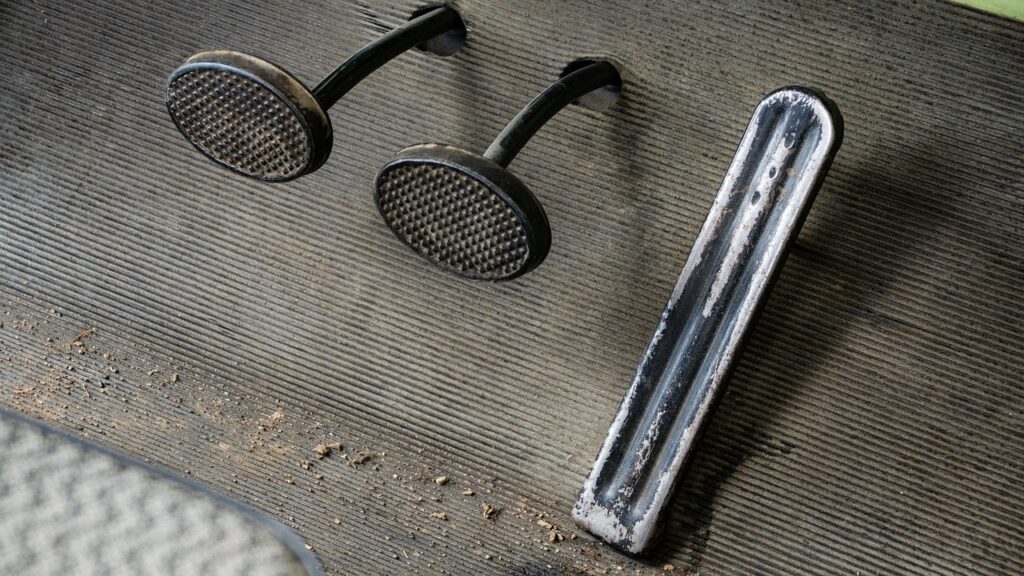
If you are a regular driver, you probably experienced vehicle issues at some point. One familiar question vehicle owners ask themselves is, “Why does my car shake when I break?” Here, we try to provide you with some answers and common reasons why your car rattles when braking.
Table of Contents
Steering Wheel Shakes When You Brake
One of the most obvious ways to know that you should have your brakes looked at is a vibrating steering wheel. Most drivers will experience this at some time behind the wheel. The reason is simple. As you might have already guessed, the problem may be with your braking system. The chances are that you have a problem with your brake rotors or brake pads. As you probably know, most of today’s cars have disc brake systems.
So, “Why Does My Car Shake When I Brake?” When you apply the brakes, the brake caliper hydraulically presses the brake pad and forces it against the rotor. The friction created by squeezing the rotor slows or stops the car. However, if the brake rotor is crooked, bent, or grooved, it will transmit vibration up to the steering wheel. The amount of vibration is proportional to the amount of damage in your braking system. You will experience less shaking if only one disc is bent or significantly more vibration if both front rotors need replacing. In extreme cases, the shaking is accompanied by strange noises coming from the front wheels.
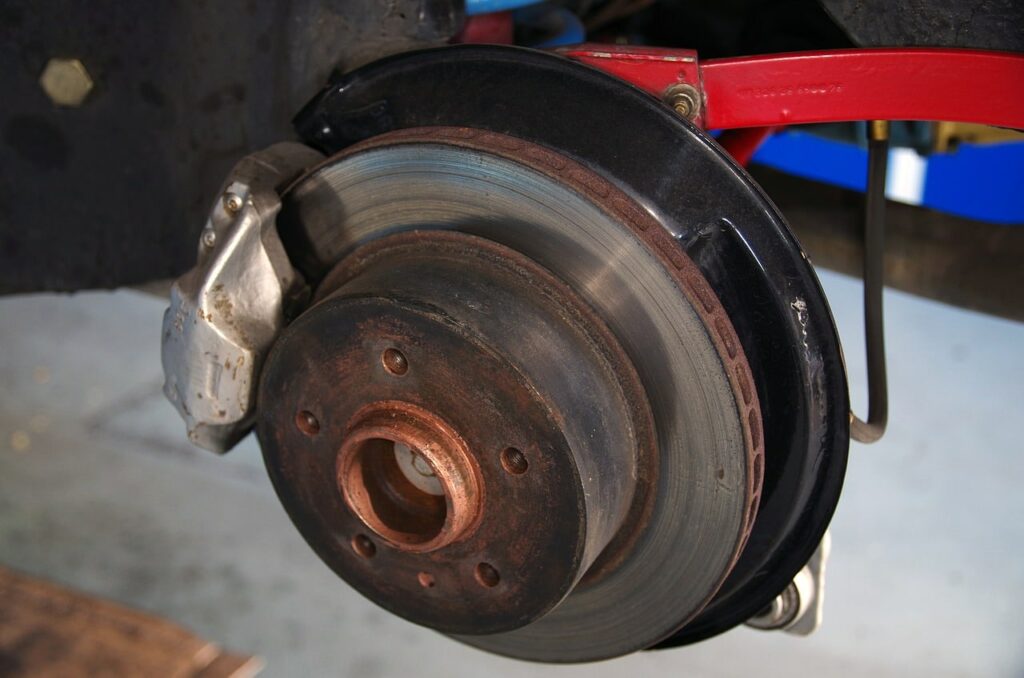
How is it possible to drive normally and still damage your car’s braking system? You don’t drive your vehicle hard. You cannot recall hitting any big potholes or doing anything that would cause mechanical damage.
Did you know that you torture your brakes every time you go for a ride? The brake rotors need to withstand intense heat, and the brake pads wear over time from fiery hot friction. You slowly destroy your braking system every time you apply the brakes. Your brakes generate excessive heat. The steel rotors get so hot that they flex or buckle, causing misalignment of the pads and rotors, which causes the vibration you feel through the steering wheel. Only brake pads used by race cars can withstand that amount of heat.
Though steering wheel vibration normally occurs in cars equipped with disc brakes, it has been known to happen in vehicles with drum brakes. However, heat is not the problem for drum brakes; disintegrating brake shoes and poor installation are also likely sources of your trouble.
The only brake system which is relatively immune to this kind of problem is the modern—and very expensive—carbon-ceramics brakes. These brakes are made from innovative materials designed to withstand incredibly high temperatures.
When you first feel the steering wheel shaking and vibrations coming from your brake system, it is time to take your car to your mechanic or car care professional as soon as possible. The shaking will only worsen, and over time, cause more damage. The vibration may loosen bolts or ruin your suspension.
The solution is to replace the discs and brake pads. To help preserve the life-span of your new braking system, brake unnecessarily. It is best not to ride the brakes—especially on inclines. Brake pads are not your car’s most expensive part, but who wants to spend money they could have saved?
Remember that every time you apply your car’s brakes, the system creates an enormous amount of heat. Extensive, extreme heat damages parts of the braking system, which in turn causes your car to shake.
“Why Does My Car Shake When I Brake?”—Poor Wheel Balancing
Most modern vehicles have precise suspension systems, which are designed for specific sized wheels and tire. If you randomly put on odd-size wheels, the first thing you will notice is that your car shakes while braking. Even if your wheels are not out of balance, they cause vibration as you apply the brakes. It’s best if all four tires are the same size, have the same tread pattern, and are from the same manufacturer. This way, your car’s suspension and brakes will work as intended.
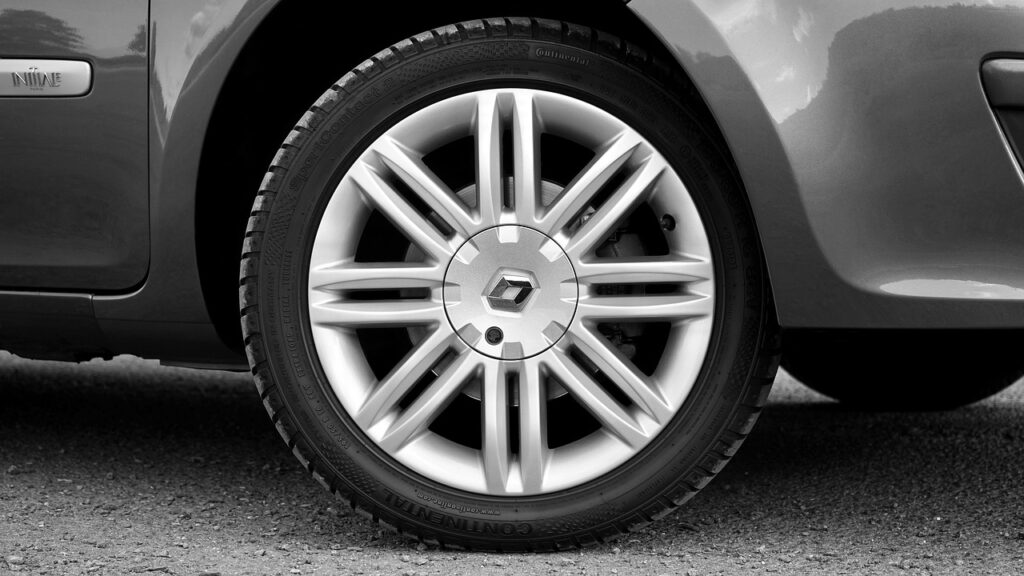
However, if this is not possible, the next best thing is to have the same size tires and wheels on one axle. This should solve the riddle of “Why Does My Car Shake When I Brake?” Some modern vehicles come equipped with advanced, computer-monitored all-wheel-drive systems that will alert you with a maintenance signal light if the wheel/tire combination is not appropriate. Using odd-sized tires might result not only in shaking while braking but also produce problems with the all-wheel-drive system (AWD) or gearbox. In some cases, vehicle shaking while braking is due to damaged wheels, flat tires, or other mechanical damage.
Poor Wheel Alignment Could be the Answer to “Why Does My Car Shake When I Brake?”
The third reason why your may car shake is a poor front-end alignment. You have probably heard of the term “alignment”. It describes numerous adjustments made to the front suspension, including control arms, sway bars, stabilizers, and shocks. Proper alignment provides the vehicle with perfect symmetry to make sure it tracks straight without pulling to either side. Newer vehicles are less likely to have alignment issues unless, of course, you hit a pothole, but it is more common on older vehicles.
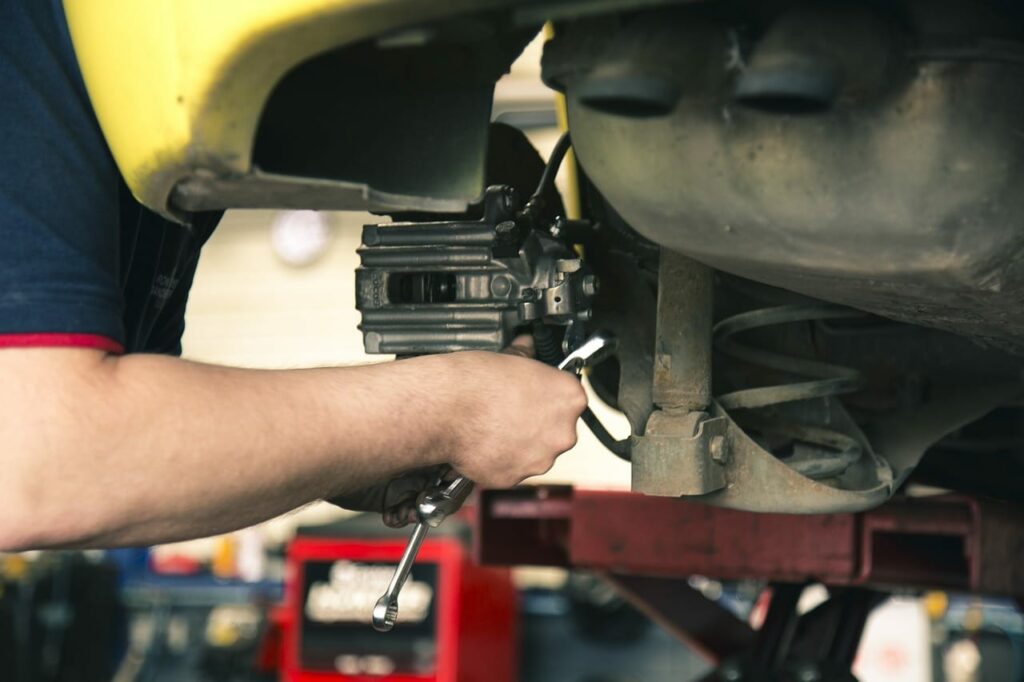
Due to extensive use, the front-end components tend to develop slight play, giving you a wobbly feeling when braking. This may help to answer “Why Does My Car Shake When I Brake?” Also, if you have suspension work done to your car, a good mechanic will recommend aligning the front end to prevent vibration and shaking while braking. Luckily, alignments are relatively inexpensive adjustments.
Damaged Suspension or Loose Lug Nuts
Another reason for “Why Does My Car Shake When I Brake?” is damaged suspension or loose lug nuts. The most common way to damage a suspension is to hit a curb or pothole while going too fast. Most modern suspension components can withstand routine daily abuse, but a part can break or bend when you hit something at high speed. Even if you are a very conscientious driver who has never hit a pothole, corrosion may be sneakily eroding vital components in your car’s suspension.
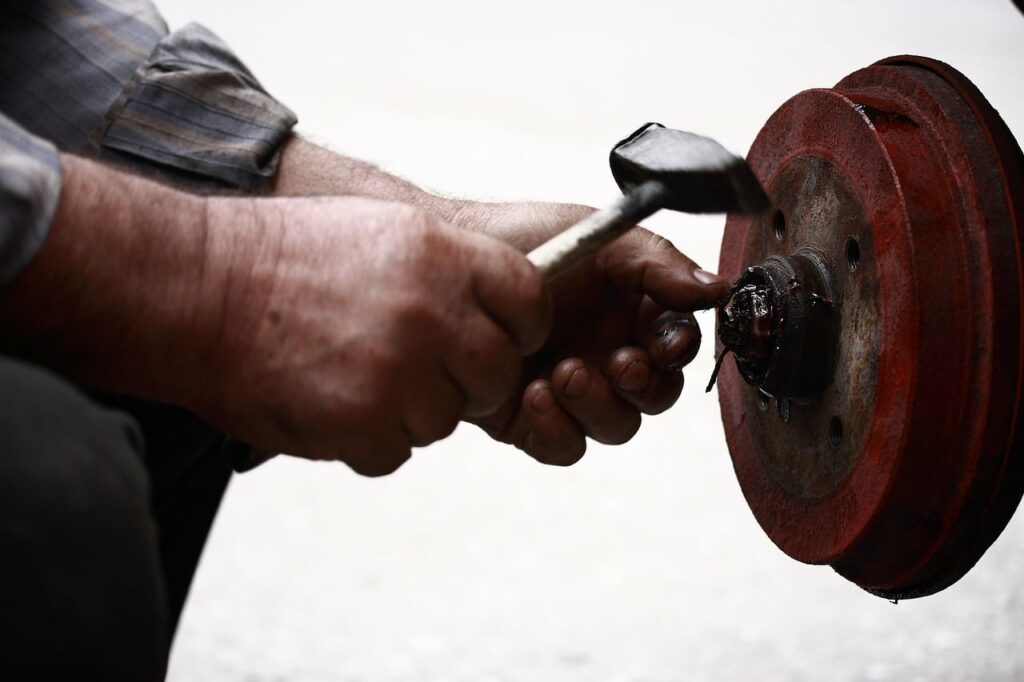
If you get in such a situation, you will immediately feel that something is wrong when you apply the brakes. The car will shake, not just the steering wheel but the whole vehicle, and the vibration will be uneven. Driving with a damaged suspension is extremely dangerous, and we suggest you pull over to the side of the road and call for a tow. If you continue to drive—even for a few more miles—you run the risk that the vibration and shaking will worse and cause more damage. The worst-case scenario is losing control of your vehicle and being involved in an accident.
Another reason your car shakes when braking could be the result of loose wheel nuts. Although it’s a very dangerous problem, there is an easy solution. When your wheel nuts are not properly tightened, the wheel is not fully attached to the car. This means while driving, even at the lowest speeds, the wheel will wobble, shake and vibrate. If you feel that the vehicle is shaking while driving or braking, this may be a sign that your rims are not properly secured. The simple solution is to use your tire iron to tighten the lugs. Though the fix is simple, loose lug nuts present a very dangerous situation—one of your wheels could fly off while driving or braking!
Conclusion
As you can see, there are numerous reasons why a car shakes when braking. Frequently the culprits are issues with the front suspension, faulty braking system, or wheels. These problems can be easily repaired by you or your mechanic—if you have skill and equipment. However, to keep your car safe and running properly, you need to be aware of warning signs like your vehicle’s shaking or vibration. Addressing the issue early will prevent the problem from developing into an extensive and potentially expensive repair. By doing so, you will save yourself money in repairs and not put yourself or others in unnecessary danger.
